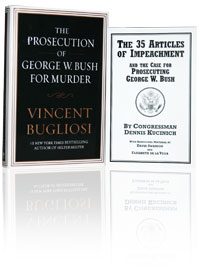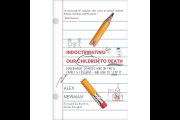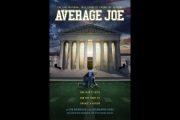
The 35 Articles of Impeachment and the Case for Prosecuting George W. Bush, by Congressman Dennis Kucinich, Los Angeles: Feral House, 2008, 124 pages, paperback.
The Prosecution of George W. Bush for Murder, by Vincent Bugliosi, New York: Vanguard, 2008, 344 pages, hardbound.
Reading through these two books on the possible criminal prosecution of George Bush is a bit like sifting through the wreckage of a home after a tornado. There’s a lot of useless debris and garbage, a few items with sentimental value only, and a few items of genuine value.
Kucinich’s book has taken on new significance now that the Bush administration is no longer in office and new Attorney General Eric Holder has pledged to Congress during his confirmation hearing that “no one is above the law.” The criminal prosecution of top Bush administration officials — and possibly former President George W. Bush himself — for crimes committed during Bush’s presidency is now a possibility because federal prosecutors no longer depend upon President Bush’s pleasure for their tenure in office. But it remains highly unlikely.
It was made less likely on January 22 when President Obama’s intelligence nominee indicated he would act to protect perpetrators who engaged in torture. “I’m hesitating to set a standard here which will put in jeopardy some of the dedicated intelligence officers who checked to see that what they were doing was legal and then did what they were told to do,” Director of National Intelligence nominee Dennis C. Blair told senators during confirmation hearings. Blair refused to call waterboarding torture during the hearing, unlike Attorney General Eric Holder, who openly called it torture during his own nomination hearings.
Congressman Dennis Kucinich’s book includes the 35 articles of impeachment he introduced, and Congress ignored, in 2007. The Ohio Democrat included lots of useless debris in his 35 articles, such as charges of “an attempt to destroy Medicare” and “endangering the health of 9/11 first responders.” In these cases, someone should have reminded him that a president can only be impeached for “high crimes” and not for political decisions you don’t like.
Other charges that may have a sentimental value — but no practical value today — to constitutionalists include the fact that Bush misled Americans into the Iraq War and wiretapped American citizens without a constitutionally required warrant. These charges are both serious and credible, but there’s no way any prosecutor would ever take Bush to trial on such charges.
Beyond any reasonable doubt, Bush lied about Saddam’s nonexistent nuclear program and ties to al-Qaeda (and relied on genuinely bad intelligence on biological and chemical weapons) to get us into war. But too many other prominent congressmen of both political parties who voted for the war would be on the hook for similar prosecutions for such charges to ever proceed.
The legal case that illegal-surveillance crimes — statutory and constitutional — were committed by the Bush administration through spying on Americans without warrant is iron clad. However, too many Americans are untroubled by government surveillance for such a nation-wrenching event as a criminal trial for an ex-president. Too many Americans today fail to see the danger in such surveillance. “It doesn’t bother me, because I’m not doing anything wrong” is a common reply to warnings of danger.
The real value in Kucinich’s book is that it does lay out several possible charges that could be prosecuted against President Bush and his subordinates, which under the right circumstances might stick: specifically those charges that relate to detention, rendition, and torture.
Bugliosi’s book is a 344-page political diatribe that would have made a fairly interesting 25-page monograph. It’s based solely on prosecuting Bush for murder for lying the American people into the Iraq War. Again, this will not happen. The prosecution of George W. Bush for murder is now about as likely as the possibility that he will be impeached from office.
The book is utterly unconvincing in that it is mostly a collection of criticisms of things Bugliosi perceives as being “conservative.” Clinton’s impeachment was unjust, he argues, because it was “mostly” about his private sexual life. (Bugliosi should be informed that perjury is without doubt an impeachable “high crime” and enumerated as such in several state constitutions, such as Texas and California; and he also should be informed that Clinton should have been impeached for the far more serious crime of “Chinagate,” which entailed the compromising of U.S. security in exchange for Chinese cash.) And he rails on at length that Americans have no reason to be “proud” of their country.
Bugliosi’s book also lacks a single footnote, despite copious references to little-known factual matters. Although he documents some statements in context, as some journalists do, the reader has to take the truthfulness of most of the factual citations on faith. Considering the partisan statements that comprise most of the book, the author cannot make this assumption if he wants to persuade.
The value in Bugliosi’s book, if there is any, is that he lays out an interesting — even if only theoretical — legal framework for the prosecution of Bush for murder. While Bush will not be charged with murder, he could be charged with other crimes using the same framework.
Such a legal framework would have to be laid out before any prosecution could commence on other crimes. Kucinich’s book outlines two statutes that could be prosecuted: torture (U.S. Code Title 18, Section 2340A) and war crimes relating to torture of prisoners abroad (Title 18, Section 2441). There are a couple of other statutory possibilities related to endless detention without a trial: conspiracy against rights (Title 18, Section 241), deprivation of rights under color of law (Title 18, Section 242), and peonage (Title 18, Section 1581). All of these crimes involve prison sentences of five years or more.
How could it be done?
Any prosecution would require both an iron-clad legal case and a clearly unpopular crime that has been committed. Such is the case with detention and, especially, torture. There are plenty of innocent detainees, and many innocents, like Muhammad Saad Iqbal, are considering suing the U.S. government. “It’s easy for the U.S. government to say, ‘There are no charges found and he’s free,’ ” the Pakistani says of being picked up on a false rumor while visiting family in Indonesia. “But who will be responsible for seven years of my life?” Someone should be responsible for this injustice, and that someone is anyone who was responsible for the policy.
Highly publicized court cases of innocent detainees, combined with televised congressional hearings and witnesses, could pave the way for prosecutions of senior Bush officials and even President Bush himself.
A witness list of innocent detainees for congressional hearings could begin with: Canadian computer programmer Maher Arar (extradited to Syria for torture), German citizens Khalid el-Masri and Murat Kurnaz, the 17 Chinese Uighurs (ethnic Turks) who were found innocent by a military tribunal and then returned to Guantanamo, Algerian Mustafa Ait Idir (a former Croatian martial arts champion partially paralyzed from beatings), 31-year-old Muhammad Saad Iqbal (beaten so severely he needs a walker to walk), and the English “Tipton Three.” There are many other innocents who could be summoned whose names have yet to attract international attention. Also on the witness list should be Ethiopian detainee Benyam Muhammed, whose innocence is questionable but who has undoubtedly undergone particularly brutal torture.
The point of congressional hearings would be to document and publicize the unconstitutional and inhumane torture that took place, as well as to establish the fact that the large number of innocents detained is directly proportional to the denial of trial rights. Trials, Americans need to be reminded, separate the guilty from the innocent. They are not privileges “given” to the guilty; they are protections for the innocent. And because the Bush administration criminally denied trials, many innocents suffered unnecessarily.
If President Obama doesn’t pardon Bush (which would end any hope for a trial) or squelch a Justice Department investigation, then trials are a real possibility.
Thomas R. Eddlem, a freelance writer, served as the John Birch Society‘s director of research from 1991-2000.



